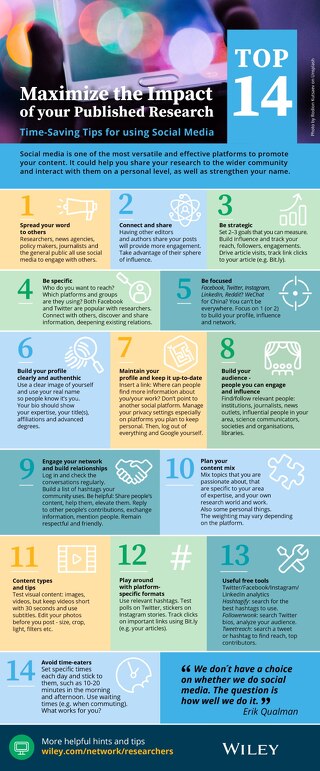how-early-career-researchers-can-effectively-engage-with-the-public
June 10, 2020
In February, I was thrilled to participate in a Sense about Science workshop on public engagement at our Marie Curie Ph.D. network conference at the University of Paris Diderot. Following this interactive and informative session, I really started to understand the meaning of effective public engagement and the practical steps to achieving it as a researcher.
I used to have a rather different view of what public engagement meant and how it was put into practice. Researchers sometimes reduce public engagement in disseminating our research work. We conduct our research and “spread the word” using the research articles we publish. Great, but is this effective public engagement? I now know it is not.
As early-career researchers, we should get involved to a much larger extent in exploring the scope of our expertise and understanding who our audiences are and should be. Let’s take off our lab coats for a moment and walk through some of the techniques I learned at the workshop, to effectively engage with the public as a researcher. You can find these tips and more by downloading Sense about Science’s Public Engagement: a practical guide, a free guide for researchers on how to involve the public in working out how to communicate findings – from the earliest stages of projects and on the most challenging of subjects.
You know more than you think
A key aspect of tackling public engagement effectively is to zoom out and take a bird’s eye view of your field of expertise. We sometimes wrongly narrow down our expertise to the topic of our research. The truth is that our expertise as researchers goes far beyond this. Take a moment and list the topics that your research intersects with, and you will be surprised about the many areas you can contribute to—not to mention that boost in confidence you can feel by acknowledging your expertise.
For instance, my research focuses on developing integrated biosensors to monitor the metabolic activity of living cells and tissues for toxicological and developmental in vitro studies. From here, I can already derive several topics in the wider field where there is a large public interest, such as: use of biomedical devices, drug testing, human health, and the environment. This simple exercise can help you scope out the areas where your expertise can be of relevance. That is the first step in connecting the dots where you can engage and contribute to important public discussions. Zooming out allows you to begin scoping, which is connecting your expertise to crucial issues that society is dealing with.
Map out the people who need to know about it
Once you have zoomed out on your field of expertise and scoped out the wider public debates within it, you can start thinking about the different audiences that should be involved and how they can be engaged with the topic. In this case, mapping out all the potential stakeholders connected in a direct or indirect way to the issue can prove very handy. This will further aid your understanding of the wider implications of the issue and who are the right groups to engage.
The workshop helped me to understand that public engagement is a dialogue. Involving people in the early stages is crucial for effective public engagement. As researchers, we must not confuse public engagement with telling people things. When you take a step back and look at the bigger picture, you can spot the added value of this early interaction, building a sense of trust and commitment to work side by side.
Put your plan into action
Like any day in the lab, effective public engagement requires planning, knowing your aims and contacting the right people at each stage. You might think: “I am a researcher, and I do not have the right skills to see through public engagement.” In fact, this can be made easier by engaging with groups and networks who are already connected to a specific audience. Sometimes, things can progress just from a chat with your supervisor, the press office, or learned societies. But it can also happen in more informal settings: at dinner with your family, playing football with your mates, chatting to the bar staff at your local pub.
Finally, maintain contact and increase your visibility to your audiences throughout the planning process. Maintaining a continuous cycle of engaging people and using the feedback as you develop your activity or resource can transform the effectiveness of your public engagement. I think a simple way to see this through is to view it as a collaboration, where you want to benefit from the other side’s constant input and feedback, building your work based on each other’s insights and concerns.
Conclusion
All in all, the techniques I learned represent practical tips for researchers out there who want to get involved in doing effective public engagement. Whether you are an early career researcher or a professor, your involvement in public engagement can make a great difference. If you’re an early career researcher in the UK or Europe, join Sense about Science’s Voice of Young Science network, an active community of early career researchers committed to playing their part in public discussions of science and evidence. Maybe you can be the next Christina Pagel, the UCL researcher who—together with a group of dedicated parents, clinical professionals and charities working with Sense about Science—succeeded in effectively opening up survival data statistics from children’s heart surgery outcomes at treatment centers around the UK and Ireland (Understanding Children’s Heart Surgery Outcomes). This example of effective public engagement around a sensitive and complex area transformed the public conversation of these survival statistics for many parents and other parties relying on this information.
So, step out of your comfort zone, truly engage, and great things can happen, because nothing is too sensitive or complex if you’re willing to have an open and honest discussion with people when it really matters.














